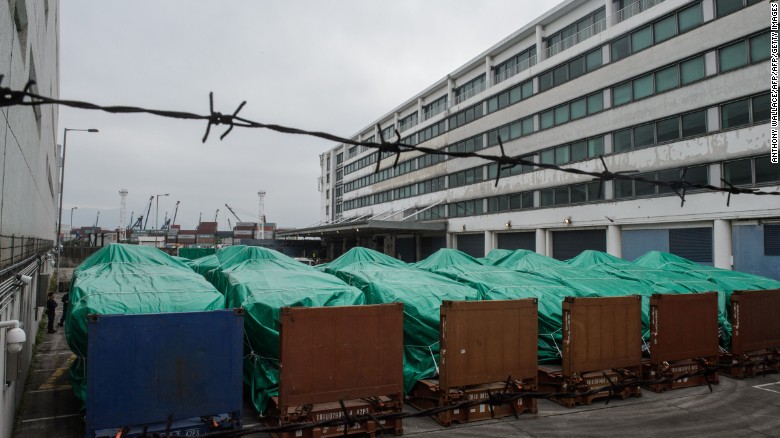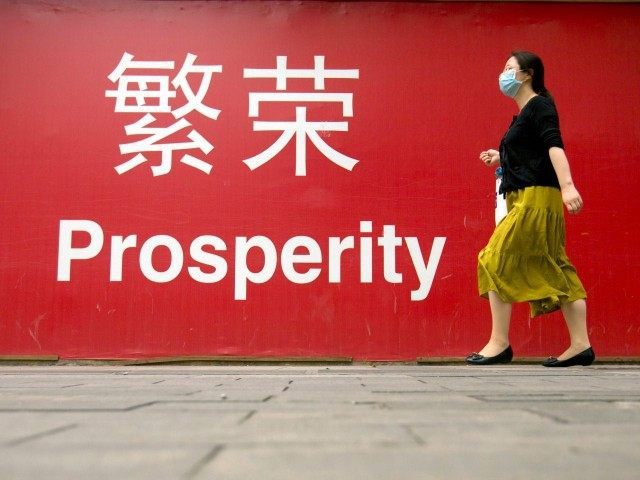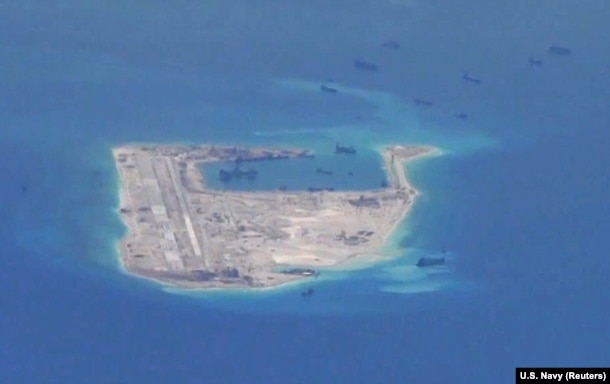A Faustian pact with Beijing would almost certainly make user behavior around the world visible to Chinese state security.BY CLAY SHIRKY, ANDREW MCLAUGHLIN, KAISER KUO

Facebook has reportedly
developed software to suppress posts from users’ feeds in targeted geographic areas, a feature created to help the giant social media network gain access to China, where it is blocked.
Facebook CEO Mark Zuckerberg has long been courting China’s leaders, studying Mandarin, and talking with Chinese internet executives.
How far should he and his company go in order to grow?
And at what expense?
—The ChinaFile Editors
Clay Shirky, global network professor, New York University’s Shanghai campus:Facebook shouldn’t do this.
Although the tool, as described, copies some industry norms — Facebook would suppress messages inside China but show them outside — it comes nowhere near what Beijing would demand for re-entry.
At the same time, those additional conditions would make any deal not worth the cost, either ethical or financial.
Though the U.S. press often writes as if the principal goal of Chinese censorship is blocking information from the United States, the Chinese Communist Party is far more worried about its own citizens.
This is why seemingly innocuous platforms such as Instagram and Tumblr are blocked; it isn’t what U.S. teenagers would post that worries the Chinese Cyberspace Administration, and those concerns would shape any Facebook deal as well.
Hiding selected posts from outside China would not meet the bare minimum of Beijing’s requirements for citizen surveillance.
Facebook would have to keep data on those users on servers in Beijing and grant the government direct access.
Offending posts by Chinese users would have to be suppressed worldwide, not just in China. (Users in Anqing would not be allowed to share posts about corruption with students in Ann Arbor.)
That’s just the geographic controls.
Beijing would demand that censorship follow Chinese citizens internationally.
They do something like this today with SIM cards, which include data headers that identify country of origin.
Chinese SIMs are subjected to Chinese censorship, whether the user is in Dalian or Dusseldorf. (This is why Chinese mobile plans have such advantageous international rates; cheap roaming means users often don’t bother to get local SIM cards, allowing censorship to follow them worldwide.)
And the situation is not static.
Under the bland banner of “stability maintenance,” social media regulations have been coordinated, onerous, and monotonically restrictive.
The chop would not be dry on any contract with Facebook before it had to be renegotiated.
Against these costs, the chance that Facebook would be allowed to succeed in China is zero.
As tech blogger
Ben Thompson wrote about the ride-hailing service Uber’s failure in the country,
“I’ve simply seen no way that the government tolerates foreign ownership of something as foundational as transportation infrastructure.”
That is true of media as well, especially media Chinese citizens use to communicate and coordinate with one another.
Two decades after the ICQ messaging service launched, there is not one example of foreign social media succeeding there — not Google, not Instagram, not WhatsApp, not Twitter.
The closest example, LinkedIn, is a business service with no threat of wide adoption and has roughly the same number of users in China and the U.K., a market 5 percent its size.
Even Apple, selling a luxury product whose software cannot be separated from its hardware, has not been able to maintain its online services — China blocks iTunes, iBooks, and News.
The ruling Communist Party appears convinced — correctly, in my view — that freedom of speech and assembly threaten single-party rule.
In addition, censorship is a good source of mercantile protection.
The idea that politics differs from economics does not resonate strongly in Beijing; the ability to provide a competitive advantage to local firms is a political tool, offering the very entrepreneurs who might push for global connectivity the consolation prize of the largest market in the world.
I understand why Facebook wants this.
It has traded as a growth stock since 2012, but user acquisition is slowing.
Access to China would allow it to postpone that reckoning by a few years.
But any Chinese presence would be token, negotiated more to reduce an irritant than to allow real access.
The “some conversation is better than no conversation” argument Facebook has been making for years now simply wouldn’t hold up under the terms demanded by the party.
Andrew McLaughlin, technology executive:Though it has been evident for years that Mark Zuckerberg really, really wants Facebook to operate in China, I’m genuinely surprised that the company appears, finally, to have made the decision to do it.
I’m surprised for two big reasons:
First,
Facebook will have to facilitate Chinese spying on non-Chinese users.
To operate in China, Facebook will have to comply not only with the party’s onerous censorship demands but also with its user surveillance requirements.
Through a multi-layered latticework of necessary operating licenses, the Chinese authorities require social networks and providers of messaging services — Facebook is both — to be willing and able to turn over user data, including account details and the contents of posts and private communications.
Doing the bidding of China’s state security apparatus will put Facebook in a position of collaboration that goes far beyond what any prominent U.S. tech company has agreed to.
The contrast with Google is instructive.
In 2006, Google entered China as a search engine — an “internet content provider,” in the taxonomy of Chinese regulators — but deliberately excluded from its China-licensed sites any services that entailed individual user data or private communications.
In that way, Google subjected its China-directed search engine to censorship requirements but avoided any obligation to comply with surveillance requests from a government prone to human rights violations. (Beyond an abstract revulsion at the prospect of assisting political persecution, we had watched with horror the imprisonment of Chinese journalist Shi Tao after Yahoo’s Hong Kong subsidiary handed over to Beijing the contents of his email account.)
But that’s not even the worst of it.
The very nature of a social network means that updates and communications written by non-Chinese users will become visible to Chinese security services.
A Facebook user’s newsfeed is the set of updates and shares posted by her/his friends, including many written by friends of friends.
If a non-Chinese user has a Chinese friend — or, given how Facebook works, even a Chinese friend of a non-Chinese friend — anything that non-Chinese user posts to Facebook could be read by Chinese state security.
Likewise, if a Chinese user likes or comments on a post by a non-Chinese user, that entire thread becomes attached to the Chinese user’s account and thus subject to Chinese governmental examination.
Because of the permeable, fluid, and semi-public sharing dynamics inherent to Facebook, I can think of no technical or policy means by which the company’s Chinese subsidiary could shield non-Chinese users’ posts, comments, likes, and shares from disclosure to Chinese state security.
Second, there is little chance Facebook can actually succeed in China.
Even if the Chinese government would permit a foreign tech company to win in a space as important as social networking (and past experience strongly indicates it will not), Chinese users have exhibited strong disinterest in local Facebook knockoffs, and there is little reason to think a foreign player will fare any better.
From eBay to Amazon to Google to Uber, the Chinese government’s initial red-carpet welcomes to Silicon Valley companies have invariably morphed into grinding wars of attrition in which local competitors collude with officials and regulators to ensure the foreigners’ long-term market failure.
Plus, Facebook will have to surrender a large degree of control over its Chinese service to whatever local partner ends up owning 51 percent of the licensed Chinese entity, as required by Chinese law.
The experiences of other Silicon Valley entrants indicate that those kinds of joint ventures most often end in frustration and acrimony. (It’s plausible, but too early to conclude, that LinkedIn will prove the exception to that rule.)
I’m surprised, in short, that Facebook would risk sparking outrage and reputational damage among its non-Chinese users (for crossing a line of collaboration that would render their posts, comments, likes, shares, and private messages vulnerable to Chinese government spying) in order to take a crack at a market in which it’s highly unlikely to succeed.
Kaiser Kuo, host, The Sinica Podcast:Given China’s increasingly strict internet censorship, it should surprise no one that any re-entry by Facebook would be conditional not only on the company’s acquiescing to censorship but also on its demonstrating the ability to carry it out to Beijing’s satisfaction.
Equally if not even more troubling would be the requirement, all but inevitable, that Facebook store Chinese user data on servers in China, making that data accessible to Chinese courts and law enforcement.
Even if Beijing deigns to allow Facebook a presence in China, Facebook will face a firestorm of criticism from human rights and data privacy activists.
It will defend its decision by invoking the same logic that U.S. proponents of engagement have always deployed.
Some connectivity is surely better than none, which is essentially what Facebook has today: a tiny, inconsequential handful of China’s more than 700 million internet users are regular users of platforms like Facebook or Twitter.
Facebook probably won’t make its case by suggesting that connecting China will bring about political change; it was, after all, suspicion of that sort of thing that got it blocked in the first place.
It may instead point to the inherent good in connectedness and note the evil — mistrust and misunderstanding — that arises in its absence.
All this justifies compromise.
Google faced a similar dilemma when it decided to enter China in early 2006.
But the moral calculus has shifted in the intervening decade.
Google may have been viewed with suspicion even then, but now — after various Color Revolutions and Arab Spring uprisings with the names of U.S. internet properties conveniently appended to them by the U.S. media — Beijing will exact far greater compromise.
China blocks far more foreign websites, and blocks them more aggressively, than it did then.
Chinese users have excellent alternatives: social media platforms where their friends already are.
They aren’t clamoring for Facebook, and those who want it have little trouble hopping the Great Firewall to get to it: Nationalists bent on trolling pro-independence Taiwanese celebs hopped the wall in droves this past summer, after all.
So Facebook has little leverage to speak of; it will play by Beijing’s rules or not at all.
Indeed, Facebook’s only real card is the public relations value to Beijing of letting the company in: “See? All that nonsense about censorship was clearly overblown.”
But it’s not.
One of the regrettable effects of our use of the “Great Firewall” as a metonym for Chinese internet censorship is that too many people equate censorship with the blocking of sites such as Google, Facebook, Twitter, and YouTube.
In fact, the censorship of domestic Chinese sites is far more onerous and impacts a far greater number of users.
That won’t change with a Facebook entry.
Whatever your posture toward Facebook for its willingness to compromise on freedom of expression in the name of engagement and greater global connectivity, the unblocking of Facebook to users in the People’s Republic of China, should it come to pass, must not be construed in any way as a loosening of censorship.



















